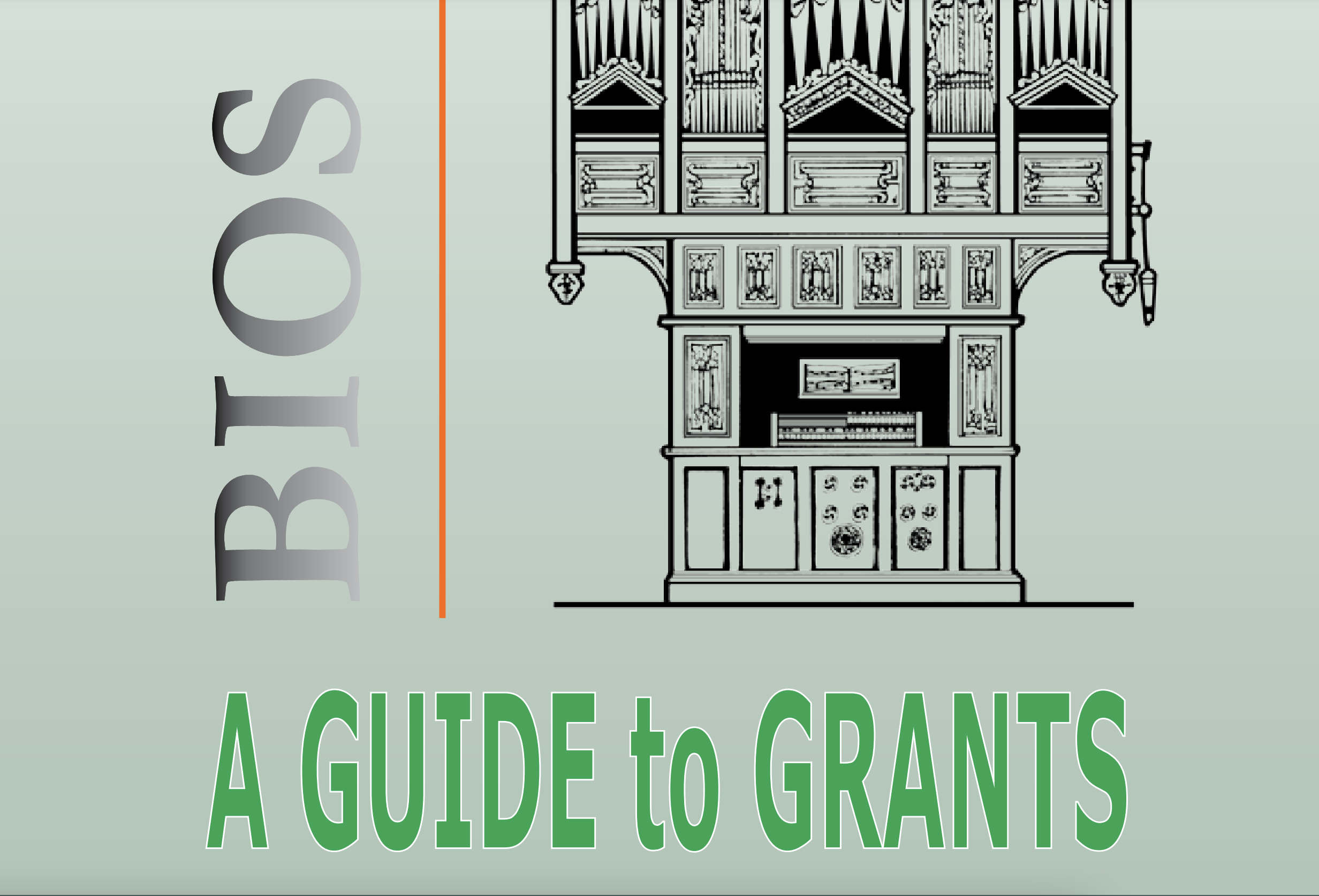For funding work on historic pipe organs (13th edition)
The grant scene is constantly changing. Although we hope the current advice remains applicable, readers will need to pursue their own enquiries, and BIOS can take no responsibility for the absolute accuracy of this guide.
Please note that BIOS itself can give only advice, not actual grants for organs.
The demand for authentic concert and record performance and, especially, the revival of interest in church music, has led to a greater understanding of the value, musical adaptability and longevity of pipe organs. Many historic instruments survive and deserve careful restoration or conservation. Funding such work, whether sacred or secular, is always a challenge, but grants are available and it is hoped that this guide will point to some of the many appropriate options and make the search process more rewarding.
The BIOS Guide to Grants is due for updating. More recent advice may be found on the website of the Institute of British Organ Building at their link here.
One of the best sources of essential advice for owners of all pipe organs is a Church House Publication prepared by the Church Buildings Council and others: ‘Sounds Good – A Guide to church organs, for incumbents, churchwardens and PCCs’. It is available from Church House Bookshop (www.chbookshop.co.uk, tel 020 7799 4064) price £6.95. They also list several other books that can guide you in determining a conservation and restoration project. There is also a leaflet (available online) Sound Advice, produced by the British Institute of Organs Studies (BIOS). The thrust of recommendations in both publications will assist applicants for Our Heritage grants (see below for further details) distributed by the Heritage Lottery Fund, and the criteria are relevant to applicants to all grant-giving bodies.
Grant-awarding bodies, not least the Heritage Lottery Fund, need to show public – as well as heritage – benefits from schemes they fund. It is essential that your application shows awareness of this and includes realistic benefits for public access and education. Your application is likely to be taken British Institute of Organ Studies Page Grants more seriously if it includes a carefully considered scheme of work, specified by an appropriately experienced organ-builder, and endorsed by a professional consultant. For example, a list of professional consultants with specialist skills, who can assist owners in the choice of a builder and the preparation of a complete scheme, is available from the website of the Association of Independent Organ Advisers www.aioa.org.uk.
It is unlikely that grants will be given for work to an organ where its original character has been largely lost through successive alterations, or where the work proposed involves modern modifications. Churches are also encouraged to seek the views of their DAC or denominational Organ Adviser when they start considering works to the organ, since this enables the advisory system to function most effectively. For an important instrument it may be worth seeking a grant for a consultant’s report before any work is contemplated.
